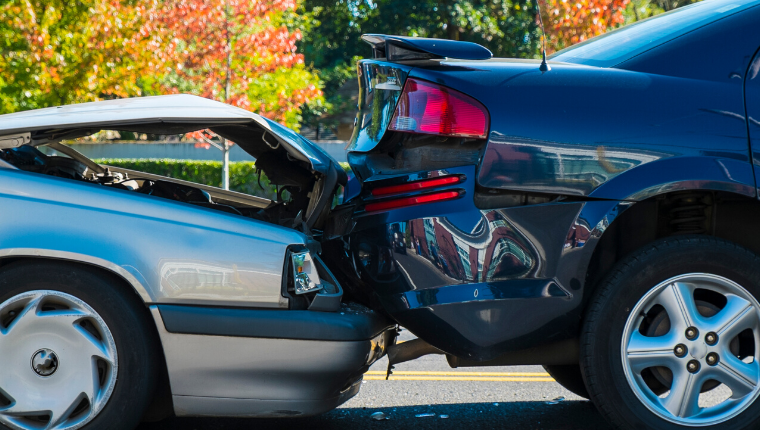Insurance Scams to Watch Out For
July 20, 2020 | by BMI Staff
Forced Rear-Ending
This dangerous claim can make a target out of just about any driver, making it a popular option for scammers to make a quick buck. This scam is carried out when a driver slows down or comes to a complete stop in busy traffic or in an area where distracted driving is more common–such as on-ramps and busy intersections. This causes the driver behind the scammer to also slow down or stop abruptly, which often leads to a crash. The reason this scam is so popular is that almost every jurisdiction deems rear-endings the fault of the rear driver. Regardless of the driving mistakes made by the person at the front of the accident, it is the responsibility of all drivers to be on the defense regarding what is ahead. Scammers will exploit the scam further by feigning a crash-related injury, which increases the insurance payout to include an injury claim.
You can avoid becoming the victim of this common scam by keeping a healthy following distance and always allowing ample room to stop, no matter how quickly. Additionally, keep your eyes not only on the car immediately in front of you but also on the cars ahead of them. It is easier to anticipate traffic flow if your attention is expanded beyond what is immediately beside or in front of you.
Faking an Injury
Even if an accident starts out as just that, scammers may take advantage of the situation by exaggerating or entirely feigning their injuries. This type of scam can happen after any type of auto accident, not just the scenario of rear-endings mentioned above. Even small, low-impact accidents can be made to seem like a bigger deal when scammers claim back or neck pain, whiplash, or other injuries. Scammers know what injuries to fake, because whiplash is difficult to detect on an x-ray. If these individuals have relationships with shady health providers, they may seek written confirmation of their non-injury in order to receive a heftier payout.
Keep an eye out for this scam by watching the behavior of the other driver involved in your accident. If those behaviors shift or become exaggerated once a police officer arrives on the scene, it is likely they are setting the framework for the scam’s believability. One way to avoid this scam is to always file a police report following an accident, no matter how minor. This will account for the exact amount of damage caused by the accident, so it will be easier to argue against exaggerated injuries later on.
Crooked Tow Truck Driver
If you have already been in an accident, the damage of a collision is already done. If you are ever in this position, know that the possibility to be scammed is still present. Con artists often work with crooked tow truck drivers to gain access to driver information. They approach or call drivers who have experienced an accident, posing as an insurance professional, to recommend fraudulent body shops or accident lawyers. These calls are dangerous because scammers on the other end are skilled at asking for the information that helps them file false claims in your name, giving them access to the payout rather than you. Avoid this scam by only communicating with your insurance company directly, rather than any third parties.









